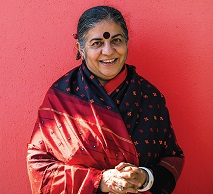
Afghanistan – Malalai Joya: “We Had One Enemy; Now We Have Three”
Source: The Nation
US forces used the plight of Afghan women to justify war—but twelve years later, women are still suffering.
In 2003, Malalai Joya was the 25-year-old director of a clinic and orphanage in Afghanistan’s Farah province. She was not a scheduled speaker at a national convention on the post-invasion future of the country, but she took the mic anyway and delivered an electrifying address. Noting the warlords in attendance, she asked: “Why would you allow criminals to be present here?” Two years later, she became the youngest person elected to the Afghan Parliament. Two years after that, having refused to scale back her criticisms, she was booted from her post. An advocate for women’s rights, secularism and nonviolence, Joya argues that neither the warlords who kept her country in despair during the Soviet era nor members of the Taliban should be any part of its government today. In her 2009 memoir, A Woman Among Warlords, she writes of the dangers she’s faced as a result.

